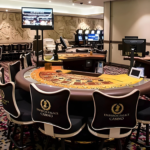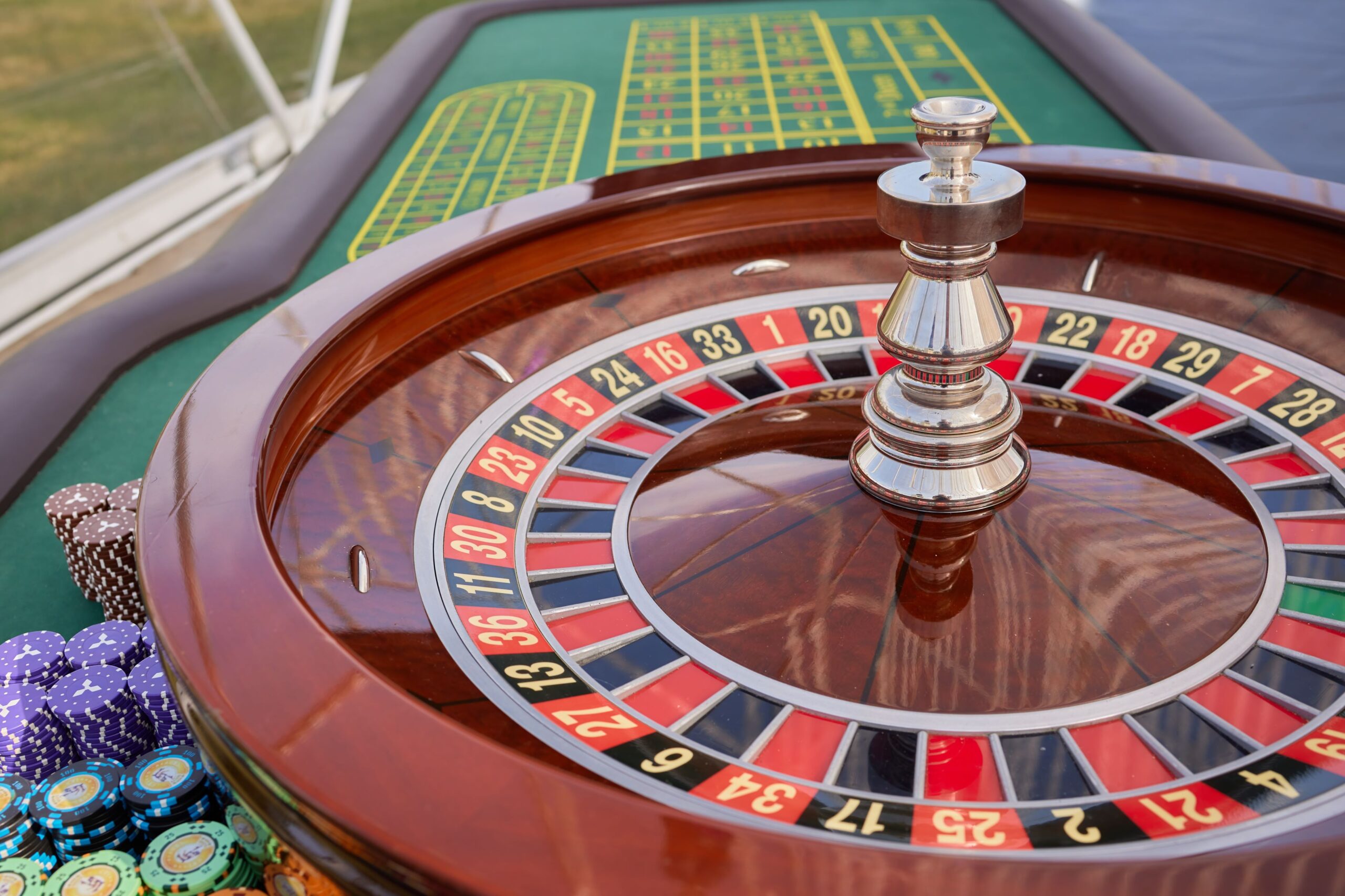Roulette is one of the most iconic casino games, and it has captivated gamblers worldwide for centuries. In South Africa, this game has become a staple of casinos, both online and land-based. While the thrill of spinning the wheel and watching the ball land in a pocket is undeniably exciting, it has also given rise to numerous myths and misconceptions. These myths often shape the way people approach the game and can even influence their chances of success. In this article, we’ll explore the most common roulette myths in South Africa and debunk them, so you can play smarter and more confidently.
Understanding Roulette and the Myths Surrounding It
Before diving into the myths, it’s important to first understand the basic mechanics of roulette. The game is played on a large wheel with numbered pockets. The most common versions of the game are European and American roulette, each with its own specific wheel layout. The European wheel contains 37 pockets, numbered from 1 to 36, plus a single “0.” On the other hand, the American wheel features 38 pockets, adding an additional “00” pocket. Players place bets on where they think the ball will land after the wheel is spun, and they can bet on a variety of outcomes, including specific numbers, colors, or groups of numbers.
Roulette’s popularity stems from its simple yet exciting gameplay. The wheel spins, the ball bounces around, and players eagerly watch as it comes to rest in one of the pockets. This element of suspense, combined with the wide array of betting options, makes roulette one of the most attractive casino games in the world. The game’s unpredictability adds to its allure, as players can never be entirely sure where the ball will land, which keeps them coming back for more.
However, despite its simplicity, roulette has also given rise to numerous myths. These myths often circulate within the casino world, among online forums, and within betting communities, often creating a false sense of understanding about the game. Many players mistakenly believe that there are surefire ways to predict outcomes or that the game can be “beaten” with the right techniques. These myths can lead players to make decisions based on misinformation, which may impact their betting strategies and overall experience. The truth, however, is that roulette is a game of pure chance, and no betting strategy or external factor can influence the outcome.
As we delve into these myths, it’s important to approach them with a clear understanding of the game’s true nature. By debunking these misconceptions, players can have a more enjoyable and informed experience, making decisions that are based on facts rather than myths. Whether you are a seasoned player or a beginner, having a solid grasp of how roulette works will not only help you understand the odds but also prevent you from falling for myths that could negatively impact your gameplay.
The “Hot” and “Cold” Numbers Fall in Patterns
One of the most common myths in roulette is the belief that certain numbers are “hot” or “cold.” This myth suggests that:
- Hot Numbers: Numbers that have appeared frequently in recent spins are thought to be more likely to appear again.
- Cold Numbers: Numbers that haven’t appeared in a while are believed to be “due” for a win.
- Independent Spins: Each spin of the roulette wheel is independent. The result of one spin has no bearing on the next spin.
- Equal Probability: Every number on the wheel has an equal chance of being selected on each spin, regardless of its past outcomes.
- Misunderstanding of Probability: This myth is based on the flawed understanding of probability. Past spins do not influence future spins.
- What is the Gambler’s Fallacy?: The gambler’s fallacy is the belief that past events affect future events in random games.
- False Assumptions: In roulette, assuming a cold number is “due” to hit because it hasn’t appeared for a while is incorrect.
- Randomness: Roulette is a random game. The ball has no memory of previous spins, and each spin has no influence on future spins.
You Can “Control” the Wheel
| Myth | Description | Why It’s False | Casinos’ Measures | Impact on Players |
| Wheel Control | Players believe they can control where the ball lands by analyzing the wheel or the dealer’s actions. | In reality, roulette is a random game. The ball’s landing spot is determined by factors such as the spin’s speed, direction, and the randomness of the ball’s bounce. | Casinos maintain and regularly check wheels for fairness and smooth operation. | Believing in this myth can cause players to focus on flawed strategies rather than understanding the odds. |
| Dealer Habits | Players think they can predict the ball’s landing spot by observing the dealer’s behavior or the speed of their spins. | Dealers are trained to be as impartial as possible, and their actions do not affect the game’s outcome. | Dealers are trained to ensure consistent behavior. | This myth can lead to frustration and a lack of focus on more effective betting strategies. |
| Wheel Imperfections | Some believe that imperfections or biases in the wheel can be exploited to predict where the ball will land. | Modern wheels are designed to be fair, and most casinos regularly inspect and maintain their equipment. Any imperfections are minimal and unlikely to affect the outcome. | Modern roulette wheels are engineered for fairness. | Misunderstanding the fairness of the wheel can lead players to waste time trying to “study” it. |
| Predicting Outcomes | Players believe that predicting the ball’s final resting place can be learned by tracking wheel behavior over time. | The ball’s behavior is chaotic and unpredictable. Even slight changes in the wheel’s rotation or the ball’s speed affect the outcome in ways that can’t be controlled. | Casino regulation and technology ensure randomness. | Relying on these predictions can cause players to ignore the true nature of the game: chance. |
| Influence on Spin Outcome | Some players think they can influence the ball’s landing spot by applying certain techniques to spin the wheel or control the ball’s movement. | The outcome is based entirely on chance. Roulette is not a game of skill but of randomness, and no amount of influence can change the ball’s landing spot once the wheel spins. | High-tech surveillance and random wheel mechanics. | Chasing control over the wheel leads to disappointment and can damage the overall gambling experience. |
Betting Systems Guarantee Wins
Many South African players believe that certain betting systems, such as the Martingale or Fibonacci, can guarantee a win in roulette. These systems are designed to manipulate bet sizes based on previous outcomes, often encouraging players to increase their wagers after losses in an attempt to recover and eventually win. The idea is simple: if you lose, you keep betting more until you win, hoping to cover all previous losses. While these systems may appear attractive, they are ultimately misleading and don’t offer a true advantage over the house.
The problem with these systems lies in the fundamental nature of roulette. The game is driven by random chance, and each spin is independent of the last. No matter how much you adjust your bets, the odds remain the same every time. The house always has a slight edge, and over time, this statistical advantage ensures that the casino will come out ahead. These betting systems do not change the fundamental odds of the game and cannot overcome the house edge, no matter how carefully they are applied.
Additionally, relying on these betting systems can lead players into a dangerous cycle of chasing losses. Players who follow these strategies often find themselves increasing their bets after each loss, convinced that a win is just around the corner. This approach can quickly escalate, putting players at risk of losing much more money than they initially intended. The excitement of using a betting system can cloud judgment, causing players to take unnecessary risks and fall into the trap of believing they can outsmart the game.
Ultimately, the truth is that no betting system can guarantee success in roulette. While the systems may offer a sense of structure and control, they cannot change the game’s inherent randomness or reduce the house edge. Players should approach roulette with the understanding that it is a game of chance, and the only guaranteed way to play responsibly is by setting limits, playing for fun, and avoiding the temptation to chase losses or rely on flawed systems.
The European Wheel is Always Better Than the American Wheel
- Difference in Pockets
The European roulette wheel has 37 pockets, consisting of numbers 1 to 36, plus a single “0.” In contrast, the American wheel features 38 pockets, with numbers 1 to 36, plus both a “0” and a “00.” The additional “00” pocket on the American wheel increases the house edge, making it less favorable for players. - House Edge
The house edge in European roulette is 2.7%, while in American roulette, it’s 5.26%. This difference arises from the extra “00” pocket on the American wheel. As a result, the European version offers better odds and is generally more appealing to players who want to reduce their risk. - Better Odds for Players
Because of the lower house edge, the European roulette wheel gives players slightly better chances of winning. However, it’s important to note that while the odds are better, roulette is still a game of chance, and there are no guarantees of success. - No Guaranteed Wins
Although the European wheel provides better odds compared to the American wheel, many players mistakenly believe that this difference will guarantee a win. The reality is that roulette outcomes are random, and even with the better odds on the European wheel, there is still no surefire way to win. - Choosing the Right Version
If you’re playing roulette in South Africa, choosing the European wheel is generally a good idea when given the option. While the odds are slightly in your favor, it’s crucial to understand that roulette remains a game of luck, and no matter which version you play, winning is never guaranteed.
Roulette Wheels Can “Beaten”
| Myth | Explanation | Reality | Why It Doesn’t Work | Impact on Players |
| Dealer Signature Theory | Some believe that by studying the dealer’s spin habits, they can predict where the ball will land. | Modern roulette wheels are carefully calibrated, and casino surveillance ensures fairness. | Dealer habits are random and can’t predict the outcome. | No consistent advantage; players are wasting time and resources. |
| Physical Wheel Flaws | Players think that by spotting imperfections or biases in the wheel, they can exploit these for a win. | Modern wheels are designed and maintained to prevent any mechanical biases, and regular checks ensure fairness. | Even older wheels that had flaws were quickly identified and fixed by casino operators. | A player’s attempts to exploit flaws are futile and may lead to casino bans. |
| Advanced Technology | Some believe technology, like tracking devices or advanced math, can help predict outcomes. | Modern roulette wheels are highly regulated, and casino systems use advanced security to monitor any attempts of manipulation. | Security measures make it nearly impossible to use any technology to beat the wheel. | Risk of being caught and banned from the casino for trying to manipulate the game. |
| Can Roulette Be Beaten? | Some players think it’s possible to “beat” the roulette wheel through patterns, mathematics, or other strategies. | Roulette is a game of pure chance, and no patterns or strategies can change the odds. | The game is random by nature; past spins do not influence future outcomes. | Misleading belief that some players might develop unrealistic expectations of winning. |
You Need a Strategy to Win at Roulette
Many South African players are under the impression that using a complex strategy can significantly improve their chances of winning at roulette. There’s a belief that having a well-thought-out plan can somehow tilt the odds in the player’s favor. However, this belief is built on a misunderstanding of how the game works.
The truth is, no strategy can influence the outcome of a spin. Roulette is a game of pure chance, and each spin of the wheel is independent of the previous one. While some players may find comfort in using a strategy, it does not change the fact that the house edge remains constant. Whether you are following a betting system or not, each spin will have the same odds. Strategies like the Martingale or Fibonacci systems are based on the idea of adjusting your bets based on previous outcomes, but they don’t offer a long-term advantage. The house edge ensures that, over time, the casino will always have the upper hand.
Rather than focusing on devising a strategy that claims to guarantee wins, it’s more beneficial to approach the game with a mindset of enjoyment. Roulette is meant to be entertaining, and while winning is undoubtedly a goal, it’s important to remember that luck plays the dominant role in determining the outcome. The excitement of the spin and the thrill of the game are what should truly be celebrated.
In the end, while strategies can make players feel more in control, they don’t offer any real advantage. Instead of stressing over which system to use, it’s much healthier to embrace the randomness of the game, enjoy the moment, and acknowledge that no method will ensure success.






